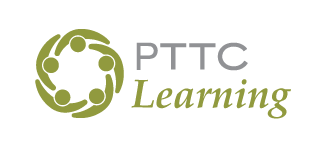
Overview
This 7-week series offers participants a unique, interactive experience to explore how to develop a sustainability plan.
Sustainability planning is an intentional process of looking critically at your current prevention infrastructure, processes, and strategies to develop the necessary resources to sustain meaningful prevention outcomes beyond current funding. Sustainability planning involves a series of concrete tasks to create feasible, ongoing support for essential components of your prevention work. Elements of sustainability planning include examining the impact of strategic planning processes, such as SAMSHA’s Strategic Prevention Framework (SPF) and interventions, priority setting, resource and feasibility analysis, communication planning, and resource and grant development.
This learning series incorporates online consultation, skill-based learning and practice, self-study and reading assignments, group activities, and discussion designed to guide participants through five critical components of sustainability planning. Trainers will demonstrate how to use a set of tools to facilitate a sustainability process with community partners and will coach participants to set actionable steps and timelines to complete a plan over the next year.
When:
Dates: Session 1 – May 29, Session 2 – June 10, Session 3 – June 12, Session 4 – June 17, Session 5 – July 1, Session 6 – July 8, & Session 7- July 10
Time:
12:00 PM – 1:30 PM Alaska
1:00 PM – 2:30 PM Pacific
2:00 PM – 3:30 PM Mountain
Facilitator:
Christina Lopez-Gutierrez is a seasoned professional in evidence-based substance abuse prevention, with a dynamic career spanning local, state, and bi-national initiatives. She began her journey in the late 1990s, implementing “model” curricula in communities. By the mid-2000s, she transitioned into providing Training and Technical Assistance (T/TA) to empower community-based coalitions, guiding them toward best practices. Her expertise has benefited diverse audiences, including single state agencies, community stakeholders, and Promotores or Community Health Workers.
Throughout her career, Christina has played a pivotal role in numerous training efforts, notably delivering the Strategic Prevention Framework (SPF) in Spanish to U.S.-Mexico border states and their Mexican sister cities. She has also been a key member of regional training teams such as SAMHSA’s CAPT and PTTC, frequently called upon to design culturally responsive training for Latino and Native American communities.
Currently, Christina contributes to a statewide evaluation team, providing critical support to grantees working to reduce prescription drug misuse and underage drinking, helping them achieve impactful, data-driven outcomes.
Objectives:
- Define sustainability and summarize key findings from research
- Explain the value of sustainability planning to community stakeholders
- Share how partnerships and collaborations provide the foundation for sustainability
- Identify and recruit partners to participate on a Sustainability Planning Team (SPT)
- Summarize five components of sustainability planning
- Collect information and capture lessons learned throughout the Strategic Prevention Framework process
- Gather information and document lessons learned from interventions.
- Develop communication products as part of ongoing sustainability effort
- Outline key tasks that inform a written sustainability plan.
- Establish a timeline to create a sustainability plan.
- Apply a set of tools to create a sustainability plan with community partner
Audience:
- Community-level substance misuse prevention practitioners and community coalition coordinators located in the Northwest (HHS Region 10) states of Alaska, Idaho, Oregon and Washington.
- Prevention practitioners who would like to become a Certified Prevention Specialist or need to continuing hours of education to meet re-certification requirements.
- Please note: This training is reserved for prevention professionals working in HHS Region 10.
- Prevention professionals interested in this course but who work outside of HHS Region 10 are encouraged to contact their region’s PTTC to learn about similar courses available to them.
Participant Commitment and Expectations:
- If your experience with Zoom is limited or you want to review key features of Zoom, please view the 20-minute Introduction to Zoom video prior to the first session on Thursday, May 29, 2025 on how to use and maximize the platform
- Participate in 7 sessions of training, for 1.5 hours on scheduled series days/times
- Complete up to ONE hour of independent learning activities between each session
- Use a web-camera and have access to appropriate technology to join the online videoconferencing platform (i.e., internet connection, built-in or USB webcam, desktop/laptop computer, built-in/USB/Bluetooth speakers & microphone)
- Actively engage and be on camera 90% of the time during each session, since this is not a webinar series and active participation is essential to gain/improve skills
Please Note:
This EPLS is not a webinar series. Active participation in each session is essential to gain and improve skills. If you cannot attend these sessions, you will forfeit your attendance.
The Northwest PTTC is committed to the safety of all participants. Driving while participating in these sessions is strongly discouraged, as it is seen as a danger to the participant. If driving cannot be avoided during your scheduled session for any reason, please contact the PTTC staff at nwpttc-info@casat.org.
In addition, it is expected that participants will have access to the appropriate technology by Thursday, May 29, 2025 to participate fully and be on camera at least 90% of the time.
If you have questions regarding technology requirements or registration details contact pttclearning@casat.org.
Certificates:
Participants who complete the entire course will receive a certificate of attendance for 17.5 hours. Partial credit will be considered if a participant completes over 80% of the course and submits completed prep packets to the course facilitator for review for any missed session. Participants will need to confirm with their certification board to determine if these certification hours are accepted towards their specific certification requirements.
To help make engagement more comfortable, we limit the number of people who can enroll in EPLS. If you cannot commit to joining the sessions or completing the prep-work packets, please defer this opportunity to others on our waiting list.
The Northwest PTTC is a collaboration led by Washington State University in partnership with Social Development Research Group at the University of Washington and CASAT at the University of Nevada, Reno.

